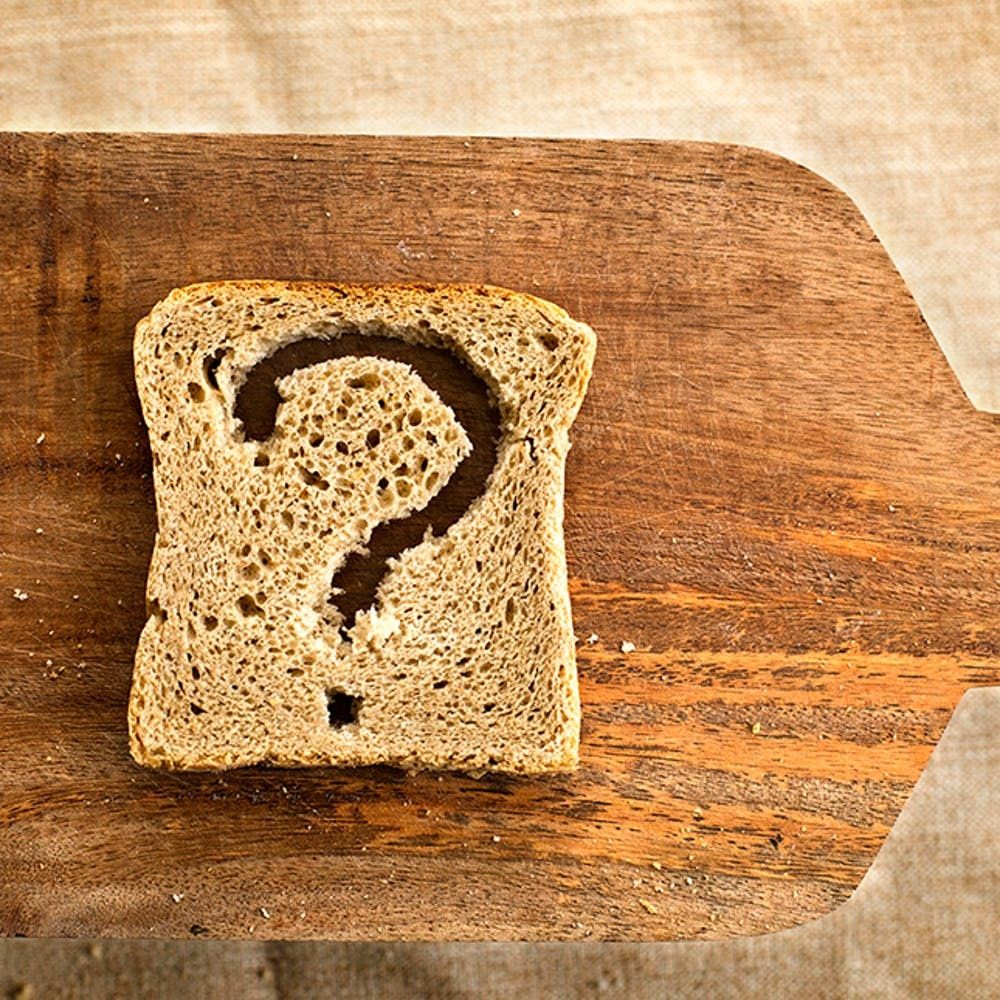One of the most tiring things about living with endometriosis is trying to explain it. Endo awareness is growing, thanks in part to women in Hollywood sharing their struggles. But even in the medical community, there’s a ton of confusion over how to classify endometriosis. When your debilitating pain gets brushed aside as a vaguely defined “problem,” it’s that much harder to justify often-misunderstood treatments like hormonal birth control or a gluten-free (GF) diet.
Going GF has helped a lot of endo sufferers — in fact, 75 percent of patients in a 2012 clinical trial reported major improvements after 12 months without gluten. But the medical community is still trying to figure out why less gluten equals less pain, and the answer might have nothing to do with endo.

Are Endo Sufferers More Likely to Have Celiac Disease?
Currently, celiac disease (CD), which affects about one percent of the population, is pretty much the only legit medical reason to drop gluten from your diet. A further 1-3 percent of people might have something called “non-celiac gluten sensitivity,” although the same researcher who discovered the condition later disproved its existence. (Wheat allergies are also a thing, but a wheat-free diet can include gluten from other sources.) Outside of celiac patients, there’s no proof that gluten causes inflammation.
Of course, it’s totally fine to dig into your fave gluten-free snacks just because they’re delicious. But if you’re looking for dietary options that actually reduce inflammation, try whole grains instead.
Given what we know about gluten and endo symptoms, it makes sense that researchers have been looking for overlap between endometriosis and celiac disease. A 2011 study of 11,000 women in Sweden found that those who had been diagnosed with celiac disease were more likely to develop endo than those without CD. And in 2014, Italian researchers looked at women previously diagnosed with endo; they found CD in 2.2 percent of these subjects, versus 0.8 percent of non-endometriosis sufferers.
Is Endometriosis an Autoimmune Condition?
There hasn’t been enough research to find a definite link between endo and celiac disease, but one theory is that endo might fall somewhere on the autoimmune spectrum. CD is an autoimmune condition, and it’s pretty common for people with one autoimmune disease to be diagnosed with another.
However, in 2012, researchers dug into all the existing connections between endometriosis and autoimmunity. They found that, while endo often coexists with autoimmune conditions — and does interact with the immune system — it doesn’t quite fit the criteria of an autoimmune disease. So we still need more evidence to understand the CD/endo connection, and how it might relate to endo symptoms improving on a gluten-free diet.
Should You Try a GF Diet For Endo?
“Eating a wheat-free diet seems to help many women with endometriosis symptoms,” says Dr. Tamer Seckin, co-founder (along with Padma Lakshmi) of the Endometriosis Foundation of America. “Whether this is a result of gluten or another component of wheat is unclear, but it may be worth excluding wheat for one month to see if it makes a difference to your abdominal pains at periods and ovulation.”
At the end of the day, if it helps, it helps. Given the success rate reported by researchers, the GF approach definitely seems worth a try.
If you do decide to go gluten-free or wheat-free, talk to your doctor before changing your diet. She can rule out other factors (like celiac disease) by running a simple blood test, but this only works if you have enough gluten in your system to test. They can also provide advice about any vitamins or supplements you should take after eliminating gluten.
What’s Up With All the Uncertainty?
If you’re still confused about the logistics of *how* going gluten-free can ease your endo pain, you’re not alone. It seems like there’s still so much to learn about endometriosis, and that’s frustrating when one in 10 people with uteruses lives with this painful condition.
It’s also worth pointing out that the 2012 study was pretty small, so many in the medical community are hesitant to give the results too much weight. Those who do opt to follow a gluten-free diet are pretty much crossing their fingers and hoping for the best.
Realistically, we won’t have the answers we want until more money is spent on funding the research. This year, the National Institutes of Health funding for endometriosis research is estimated at $7 million — that’s down from $10 million last year. Meanwhile, the loss of productivity attributed to endo (from reduced or missed work) rings in at $119 billion per year in America alone.
Have you tried a gluten-free diet for endo? Tell us how it worked @BritandCo!
(Photo via Getty)


